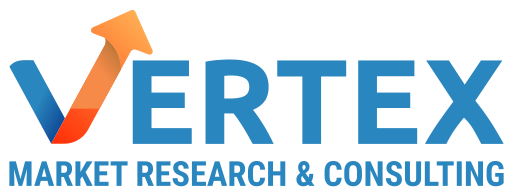RegTech Market: Transforming Compliance Through Innovation

The Regulatory Technology (RegTech) market is undergoing rapid transformation, driven by increasing regulatory pressures, technological advancements, and the growing demand for efficient compliance solutions. As global financial and non-financial sectors grapple with increasingly complex regulatory landscapes, RegTech has emerged as a crucial enabler of agility, accuracy, and cost-efficiency in regulatory compliance.
Understanding RegTech
RegTech, short for regulatory technology, refers to the use of emerging technologies such as artificial intelligence (AI), machine learning, big data analytics, blockchain, and cloud computing to streamline and automate compliance processes. These technologies help organizations monitor regulatory changes, manage risk, detect fraud, ensure data protection, and file accurate reports in real time.
Initially adopted by financial institutions to address post-2008 financial crisis regulations, RegTech has since expanded into other sectors such as healthcare, energy, telecommunications, and insurance, where compliance is equally stringent and critical.
Market Drivers
Several factors are contributing to the rapid growth of the RegTech market:
-
Rising Regulatory Complexity
Global regulators are continuously introducing new rules and tightening oversight, particularly in areas like anti-money laundering (AML), know your customer (KYC), data privacy, and cybersecurity. Organizations are compelled to adopt RegTech solutions to keep up with these evolving requirements efficiently. -
Technological Advancements
Innovations in AI, natural language processing, and real-time data analytics are enhancing the capabilities of RegTech platforms. These tools can quickly analyze vast datasets, identify anomalies, and deliver predictive insights, offering a competitive edge in managing regulatory obligations. -
Cost Efficiency and Risk Reduction
Traditional compliance methods are labor-intensive and prone to human error. RegTech automates these tasks, reducing operational costs and minimizing the risk of non-compliance penalties. -
Demand for Real-Time Monitoring
In today’s fast-paced digital environment, real-time risk assessment and monitoring are critical. RegTech provides real-time compliance tools that offer immediate insights, helping organizations act swiftly against potential breaches. -
Globalization of Business Operations
As companies expand across borders, they encounter multiple regulatory regimes. RegTech solutions offer centralized compliance systems capable of handling diverse international regulations, streamlining cross-border operations.
Key Market Segments
The RegTech market is segmented by application, organization size, deployment type, and industry verticals.
-
By Application: The major areas include risk and compliance management, regulatory reporting, identity management, fraud detection, and transaction monitoring.
-
By Organization Size: Both large enterprises and small and medium-sized enterprises (SMEs) are adopting RegTech, with SMEs increasingly recognizing its value in reducing overhead and improving compliance accuracy.
-
By Deployment: Cloud-based solutions dominate the market, offering scalability, flexibility, and lower upfront costs.
-
By Industry: While financial services remain the largest user, industries such as healthcare, legal, and energy are rapidly incorporating RegTech to meet compliance standards.
Challenges Facing the Market
Despite its potential, the RegTech market faces several challenges. Data privacy concerns, particularly in cross-border data transfers, pose significant hurdles. Additionally, integration with legacy systems, high implementation costs for smaller players, and regulatory uncertainty in emerging markets can hinder adoption.
Furthermore, the pace of technological change can outstrip the ability of regulators to provide clear guidelines, potentially leading to inconsistencies in application and enforcement.
Future Outlook
The RegTech market is poised for sustained growth, with projections indicating a multi-billion dollar valuation within the next few years. As regulatory scrutiny intensifies and technology becomes more sophisticated, RegTech will continue to be a strategic priority for businesses seeking compliance resilience and operational efficiency.
In the future, the integration of generative AI, decentralized data ecosystems, and regulatory sandboxes is expected to further drive innovation. Collaborative efforts between regulators and RegTech developers will be essential to align technological capabilities with regulatory goals, ensuring both innovation and accountability.
- Art
- Causes
- Crafts
- Dance
- Drinks
- Film
- Fitness
- Food
- Giochi
- Gardening
- Health
- Home
- Literature
- Music
- Networking
- Altre informazioni
- Party
- Religion
- Shopping
- Sports
- Theater
- Wellness
- IT, Cloud, Software and Technology


